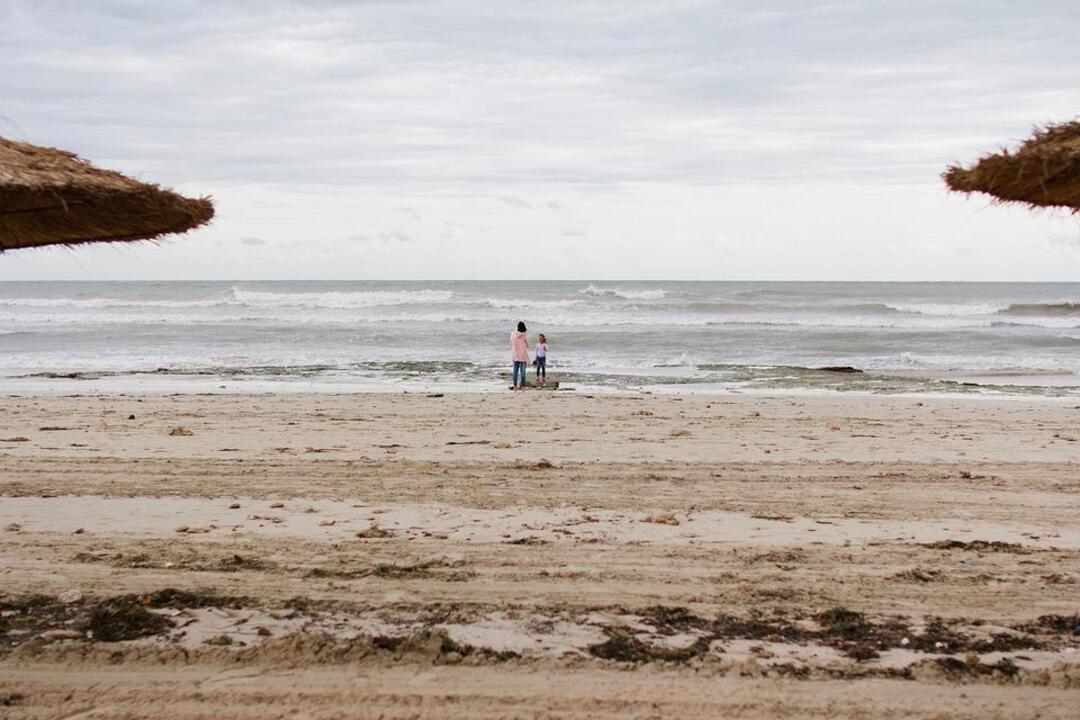-
Tunisian scientists warn of degradation of Posidonia, the lungs of the Mediterranean Sea

The Africanews reported, Tunisian specialists are sending an alarm on the damaging effects of the reduction of posidonia in the Mediterranean Sea.
Over the years scientists have proven the seagrass meadows have a strong carbon absorbtion capacity. And according to this marine ecologist in Tunis, posidonia could also produce up to 20 litres of oxygen per square meter.
Rym Zakhama-Sraieb, researcher at the University of Tunis explains: " Forests store carbon on land, and this is called green carbon. Underwater, it is referred to as blue carbon. So these ecosystems and especially posidonia, capture large quantities of carbon over thousands of years, what's more, if we compare them with land ecosystems, there are much more effective in terms of carbon storage and sequestration."
44% of Tunis's beaches at risk of erosion
The North African country is popular for its beaches, one of the great assets of tourism. However, over 40% of these dream spots are at risk since the seagrass species also helps to break the waves and prevent from erosion.
Yassine Ramzi Sghaier, a marine biologist, said: "The existence of all Tunisian economic activities relies on posidonia. Fishing is closely linked to the state of the meadows.
Study shows Brazil responds to less than 3% of deforestation alerts
Tunisian's coasts and its regression which can directly affect the tourism sector, is linked to the existence and presence of these posidonia. And if tomorrow there are no more banks, we run the risk of having more serious economic problems than those we are currently seeing."
The fishing sector also affected
The fishing industry which represents 13% of the country's GDP is also at risk as these underwater forests provide shelter for marine species.
Mazen Magdiche goes out fishing near Monastir, in the central coast of Tunisia and over the years he has seen the sea change : "The places where we used to fish, 100 metres away from the coast are different, especially when you get closer to the shore, where there used to be posidonia, that is now gone."
Sri Lanka declares famous dead Indian elephant as national heritage
The 45 year-old fisherman says these conditions are making it hard for him to continue his work, "The sea has been extremely affected and we are now struggling to find enough fish to make a living".
A study conducted 12 years ago in the Gulf of Gabes on Tunisia's east coast, found the massive degradation and disappearance of the seagrass bed was essentially due to illegal fishing and pollution.
Source: africanews
You May Also Like
Popular Posts
Caricature
BENEFIT Sponsors BuildHer...
- April 23, 2025
BENEFIT, the Kingdom’s innovator and leading company in Fintech and electronic financial transactions service, has sponsored the BuildHer CityHack 2025 Hackathon, a two-day event spearheaded by the College of Engineering and Technology at the Royal University for Women (RUW).
Aimed at secondary school students, the event brought together a distinguished group of academic professionals and technology experts to mentor and inspire young participants.
More than 100 high school students from across the Kingdom of Bahrain took part in the hackathon, which featured an intensive programme of training workshops and hands-on sessions. These activities were tailored to enhance participants’ critical thinking, collaborative problem-solving, and team-building capabilities, while also encouraging the development of practical and sustainable solutions to contemporary challenges using modern technological tools.
BENEFIT’s Chief Executive Mr. Abdulwahed AlJanahi, commented: “Our support for this educational hackathon reflects our long-term strategic vision to nurture the talents of emerging national youth and empower the next generation of accomplished female leaders in technology. By fostering creativity and innovation, we aim to contribute meaningfully to Bahrain’s comprehensive development goals and align with the aspirations outlined in the Kingdom’s Vision 2030—an ambition in which BENEFIT plays a central role.”
Professor Riyadh Yousif Hamzah, President of the Royal University for Women, commented: “This initiative reflects our commitment to advancing women in STEM fields. We're cultivating a generation of creative, solution-driven female leaders who will drive national development. Our partnership with BENEFIT exemplifies the powerful synergy between academia and private sector in supporting educational innovation.”
Hanan Abdulla Hasan, Senior Manager, PR & Communication at BENEFIT, said: “We are honoured to collaborate with RUW in supporting this remarkable technology-focused event. It highlights our commitment to social responsibility, and our ongoing efforts to enhance the digital and innovation capabilities of young Bahraini women and foster their ability to harness technological tools in the service of a smarter, more sustainable future.”
For his part, Dr. Humam ElAgha, Acting Dean of the College of Engineering and Technology at the University, said: “BuildHer CityHack 2025 embodies our hands-on approach to education. By tackling real-world problems through creative thinking and sustainable solutions, we're preparing women to thrive in the knowledge economy – a cornerstone of the University's vision.”
opinion
Report
ads
Newsletter
Subscribe to our mailing list to get the new updates!






















